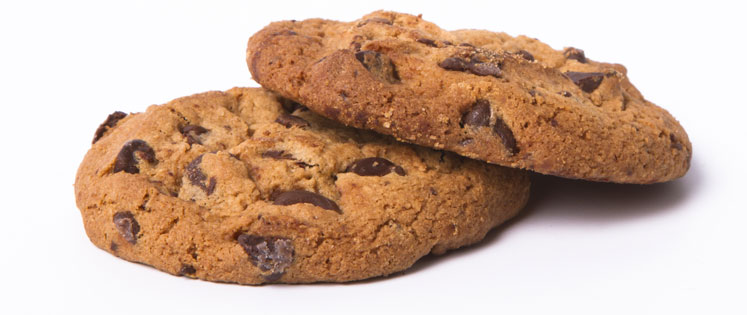Some food for thought about using sweets to encourage good behaviour.
“Sweetie, finish all your broccoli, then you can have dessert.”
“If you get an A+ on your test, we can go out for ice cream.”
Do these sound familiar? As parents, we often resort to using food as a bribe to encourage good behaviour, because it works—in the short run. But you may want to consider this: Research shows that using food as a reward can have negative consequences that go far beyond the short-term benefits of good behaviour or performance1. Instead of eating in response to hunger, food rewards encourage eating in response to good behaviour. It encourages over-eating, and can lead to problems with responding properly to hunger and fullness cues2,3,4. Rather than eating in response to feelings of hunger, it teaches a child to tie foods to moods, or in other words, associating certain foods with certain feelings, like, “I need chocolate when I’m feeling down,” or “I have cake when I feel happy!”6

When you use a sweet food as a reward, you end up teaching children that those are more desirable foods, which leads them to prefer them over other healthy foods5,8. For example, if a child is asked to take three more bites of broccoli before they can have ice cream, they will be much less likely to enjoy eating broccoli in the long term. Research shows that children learn to like foods with repeated exposure, but this learning is compromised when children are bribed9 to eat their vegetables before having dessert. Parents are in a stronger position to influence children’s eating habits by eating and enjoying healthy foods themselves10.
What can I use as a reward instead of food?
Rewards can be as simple as attention, praise, and thanks. Some parents offer extra playtime, stickers, time to read a book together11, or a special activity such as a visit to the pool.
Should I be using rewards for my children?
While reward-based systems in general are very popular, experts argue whether they help in the long run. Some research shows that people can be less intrinsically motivated when there is a reward4, and so when the reward is taken away, the behaviour disappears as well.
So how do I treat sweets?
“You can have your cake and eat it too!” Desserts and sweets shouldn’t be treated as more special than other foods. When we label foods as “good” or “bad”, we may feel guilty when we have sweets because we think we shouldn’t7. Is chocolate cake on the menu for dessert tonight? Give everyone a small portion as part of the meal and enjoy it together. Don’t fall in the trap of forbidding these foods—children want what they can’t have, and believe it or not, adults do too! As a parent, your job is to offer a variety of foods for regular meals and snacks in a pleasant environment free of worry. Your child will learn to eat and grow up like those they love! To learn more about how to use sweet foods, check out this article by Ellyn Satter, registered dietitian and feeding expert.
by Christina Kwan, dietetic intern (and Nicole Spencer, MEd, RD)

References
- Birch LL. Development of food preferences. Annual Review of Nutrition, 19:41-62, 1999.
- Dulude G, Marquis M. Relations entre les pratiques alimentaires maternelles et l’alientations d’enfants québécois d’âge prescolaire. Canadian J Diet Pract and Res. 74:119–123, 2013.
- Birch LL, Fisher JO, Davison KK. Learning to overeat: maternal use of restrictive feeding practices promotes girls’ eating in the absence of hunger. The American Journal of Clinical Nutrition. 78:215-20, 2003.
- Birch LL, Fisher JO, Grimm-Thomas K, Markey CN, Sawyer R, Johnson SL. Confirmatory factor analysis of the Child Feeding Questionnaire: a measure of parental attitudes, beliefs and practices about child feeding and obesity proneness. Appetite, 36:201-210, 2001.
- Jacobsen, M. “Does rewarding kids to eat healthy backfire?” Retrieved from http://www.raisehealthyeaters.com/2014/03/does-rewarding-kids-to-eat-healthy-backfire-what-the-research-says/
- Puhl RM, Schwartz MB. If you are good you can have a cookie: how memories of childhood food rules link to adult eating behaviors. Eating Behaviors. 4:283-293, 2003.
- Satter E. (2008). Secrets of feeding a healthy family: How to eat, how to raise good eaters, how to cook. Madison, WI: Kelcy Press.
- Story M, Nanney MS, Schwartz MB. Schools and obesity prevention: creating school environments and policies to promote healthy eating and physical activity. Milbank Quarterly, 87: 71–100, March 2009.
- Satter E. “Answering parents’ and professionals questions about meals: Food acceptance.” Accessed May 21, 2015 from http://ellynsatterinstitute.org/fmf/fmf10.php
- Picard A. “Children need role models, and inspiring surroundings.” Globe and Mail, Sept. 9, 2004.
- Action Schools! BC. Non-Food Rewards for Children and Youth. Accessed April 2, 2015 from http://www.actionschoolsbc.ca/sites/default/files/resources/AS%21%20BC%20Non-Food%20Rewards.pdf
